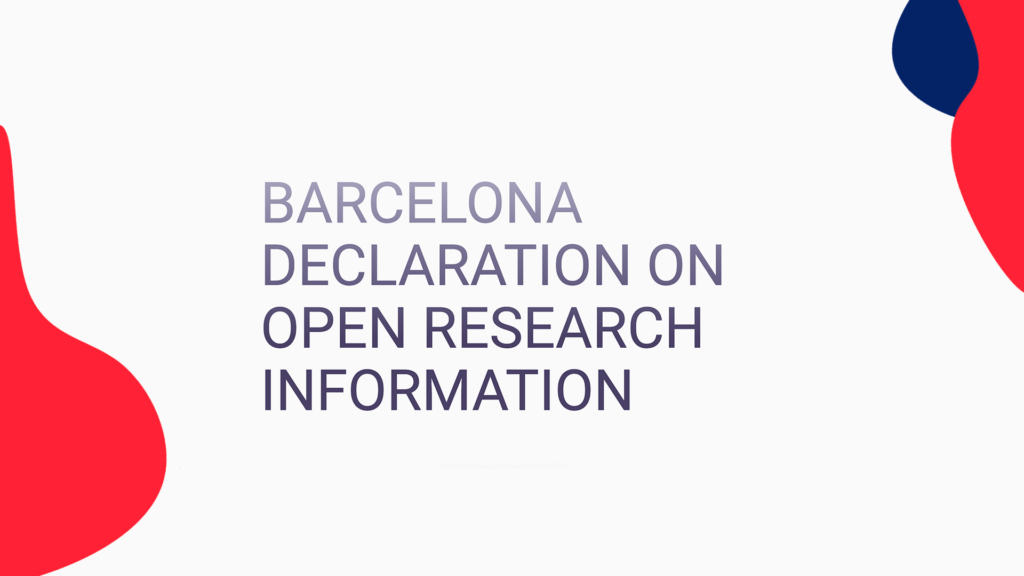
Érudit reinforces its commitment to the openness and transparency of research information by signing the Barcelona Declaration on Open Research Information.
A vast majority of the research information essential for decision making and policy design remains, even today, confined in proprietary and commercial platforms, hindering the developments of knowledge and societies.
“Errors, gaps, and biases in closed research information are difficult to expose and even more difficult to fix. Indicators and analytics derived from this information lack transparency and reproducibility. Decisions about the careers of researchers, about the future of research organizations, and ultimately about the way science serves the whole of humanity, depend on these black-box indicators and analytics.”
Published in April 2024 and written by a committee of more than 25 experts in research information, the Barcelona Declaration on Open Research Information aims at solving these issues. This initiative is aligned with previous calls in favor of more open and equitable science and knowledge, such as DORA, the UNESCO Recommendation for Open Science, or the FAIR Principles (Findability, Accessibility, Interoperability, and Reuse of digital assets).
Commitments for more accessible scientific information
The Declaration is structured around four main commitments :
- Make openness the default for the research information used and produced;
- Work with services and systems that support and enable open research information;
- Support the sustainability of infrastructures for open research information;
- Support collective action to accelerate the transition to openness of research information.
The need for joint action
“We are getting close to a tipping point in the transition from closed to open research information. But to reach this tipping point, more concerted action is needed.”
The Declaration can be signed and adopted by organizations that perform, fund, or evaluate research, in addition to organizations that provide research information infrastructures. By signing the Declaration as “Supporter”, Érudit joins the more than 80 organizations that have committed themselves to respecting these principles of openness and transparency, among them, Érudit’s partner organization Public Knowledge Project (PKP). Érudit thus reinforces the open and transparent nature of its digital infrastructures and its will to collaborate with Canadian and international actors within the research ecosystem, in service of a more accessible science.
The full text of the Declaration can be read in English and in French.